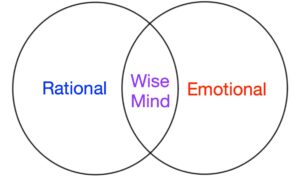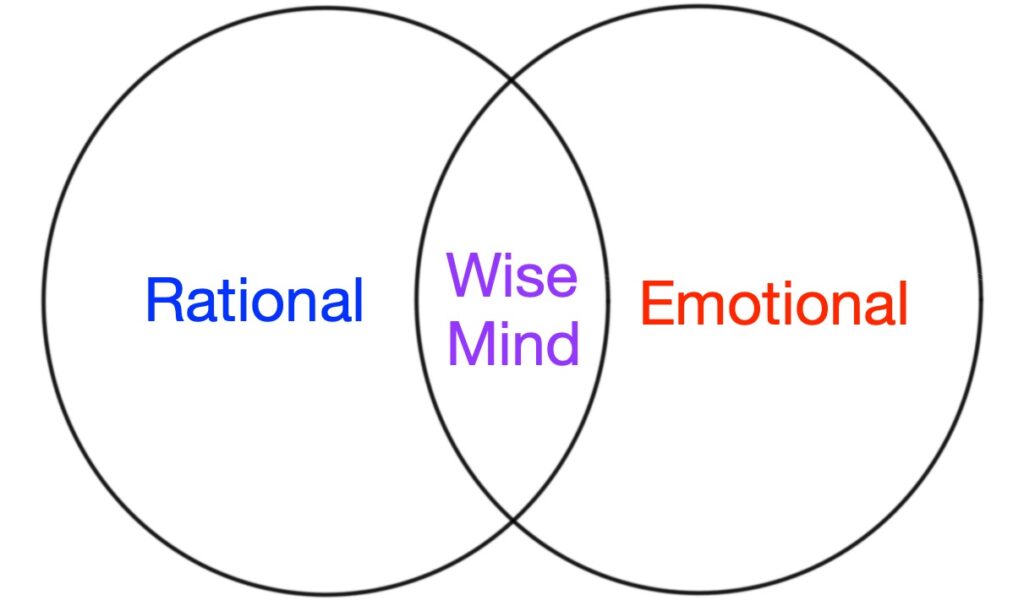
Pandemic Panic
Reactions to the spread of the Novel Coronavirus are upending our lives. Let me repeat my opening: Reactions to the spread of this highly-contagious and sometimes deadly disease are creating a pandemic panic – complicating and even endangering our lives.
As we settle into the practical practices of home-schooling children, working-from-home, and quarantining larger geographic areas, know that these are common-sense responses to this unprecedented outbreak. As importantly, understand that our emotional reactions to these recent conditions and resultant rituals will also determine the overall impact of this threat.
I am not writing to minimize the seriousness of this viral outbreak nor intentionally stirring controversy in any way. Educating ourselves about virus transmission and containment, as well as implementing infection-prevention practices, is paramount for getting through this crisis intact.
However, there’s a pandemic panic happening within this medical outbreak: Perception challenges and Behavioral issues that are spreading like wildfire and need addressing, containing, and conquering before they, too, devastate us.
“Ring, Ring”
People contact me when their lives become disruptive or overwhelming: this often happens only after callers have exhausted all attempts to manage their problems alone. Many entrench themselves in denial or procrastination. Some mismanage their anguish by scapegoating those around them. A few choose momentary escapism – through drugs, alcohol, or other focus-pulling compulsions.
The familiar dynamic in all these scenarios is Avoidance: Circumnavigate an issue with denial, judgment/blame, or escape, and you’ll eventually find yourself returning to the same problem-at-hand: When we don’t address an issue, the issue remains – and often grows worse.
Many are trying to manage our current global challenges in emotionally dysregulated ways.
Government officials have suggested – and then mandated – public policies designed to flattening the progressing curve of COVID-19 infection. Yet, a backlash to these rules has also emerged: Many of us are reluctant to wear face masks in public; others are not practicing safer social distancing recommendations; some still defiantly congregate.
Avoidance also flourishes geographically: to date, nine states refuse to issue formal stay-at-home orders and the Federal government declines its authority to step in: Not making a policy decision is making a policy decision.
I’m Not Dr. Spock
The opposite extreme of Avoidance is Panic: I’m not opposed to feelings, however, chaining ourselves to emotion-fueled assumptions is unproductive and unhealthy. Our culture’s fervent and repetitive posting and tweeting isn’t helping – especially when a segment of the information being shared isn’t reliably-sourced. The result: there’s a lot of irrational behavior masquerading as practical action out there.
I recently came across a statement that’s of vital consideration when addressing any crisis: Patriotism needs allies whereas Nationalism needs enemies.
In other words, we need to depend on one another to end this crisis. There is no country or specific group of people to blame for COVID-19. Nor is it a plot to over-throw our economy: Such fear-mongering only divides us. Casting another culture, another city, or even the guy across the street as the villain is problematic at best and dangerous at worst.
I find it shocking that gun shops are among the deemed “essential businesses” staying open in Los Angeles (where I live): The hoarding of toilet paper is annoying, but lines of people buying and stockpiling arms and ammunition are downright dangerous – especially when our culture is largely in panic mode.
Coronavirus is an opportunistic infection – nothing more, nothing less: It is how we address the characteristics of this virus that will ultimately determine its impact.
Emotional Regulation Not Pandemic Panic
My role as a therapist is to increase client awareness by reviewing their thinking/feeling/behaving and then helping them update what’s no longer serving them. Through our sessions, they investigate and implement logical plans of action to discover and apply healthier coping and life-management skills.
A large part of balancing my clients’ life-challenges involves presenting rational counterpoints to their emotion-fueled perspectives. I accomplish this, in part, through the Dialectical Behavioral Therapy intervention called Wise Mind.
Wise Mind During Trying Times
The Wise Mind technique involves acknowledging that feelings like panic, anger, and helplessness are palpable and real. However, we must also consider that the roots of these impulses can sprout from misinformation, cloudy beliefs, or faulty thinking. Because of this, these feelings can be ineffective or even inappropriate for given circumstances.
Our goal is to shift away from distorted thinking and toward rationality. Our target is a consistent, behavioral home-base where emotion and logic are integrated.
Notice the overlap between Rational (thinking) and Emotional (feeling) labeled circles in the graphic at the top of this article. Now focus on the circles’ overlay: Wise Mind is the integration of both thinking and feeling that keeps us perceptively balanced.
According to veteran DBT practitioner Lane Pederson, PsyD: “We have many mental windows – to our thoughts, emotions, and bodily sensations, as well as windows to each of our senses and the environments around us.”
Through the practice of Wise Mind, we can create what DBT-ers call a “Teflon” experience; the ability to let potentially stressful situations “slide off” instead of “stick to” us. Teflon Mind is not a denial strategy, but a practice of acknowledging and accepting that creates a sure-footed awareness – helping us manage even the most challenging of circumstances.
“It’s not what happens to you, but how you react to it that matters.”
-Epictetus
The best way to diminish fear-susceptibility in these trying times is to practice Wise Mind. By consciously pulling ourselves away from emotionality and toward rationality, we become better equipped to psychologically navigate even the most slippery of slopes. Through reinforcing these perspective-shifting abilities, we gain confidence and resiliency, creating short-term solutions and long-term cultural gains.
The best way to bypass any emotional challenge is to venture down life’s path with a balanced gait.
For up-to-date and reliable information and updates about Coronavirus, please visit the Center for Disease Control website.

